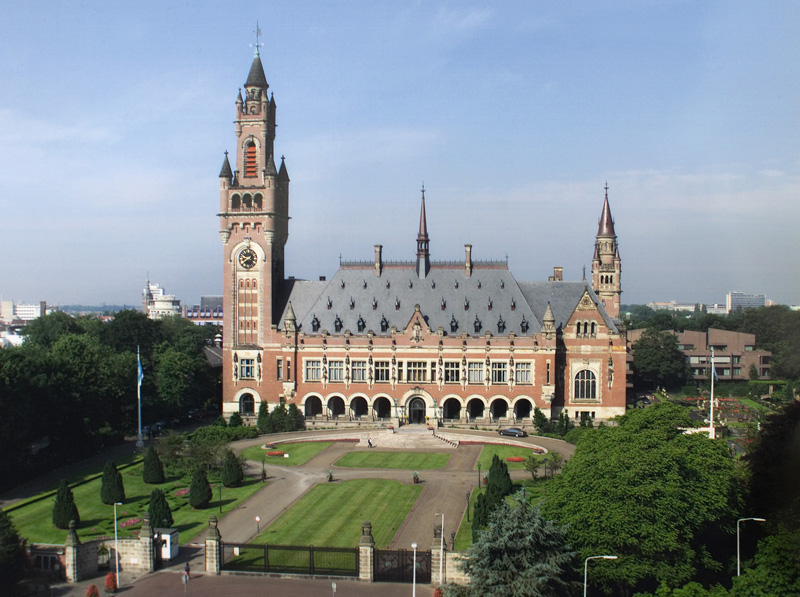Ukraine v. Russia: Hague tribunal to hear genocide case
The United Nations International Court of Justice will hold a public hearing in The Hague on March 7 and 8 (Ukraine v. Russian Federation).
The International Court of Justice, the principal judicial organ of the United Nations, will hold public hearings in the case concerning Allegations of Genocide under the Convention on the Prevention and Punishment of the Crime of Genocide (Ukraine v. Russian Federation) on Monday 7 and Tuesday 8 March 2022,” at the Peace Palace in Hague, where the court is located,” the court’s press service said in a statement released by Radio Svoboda.
The court clarified that the hearings on the current COVID-19 pandemic will be held in a hybrid format: some members of the Court will personally attend the oral hearings in the Great Hall of Justice, some via video.
On February 27, President Volodymyr Zelensky announced that Ukraine had formally filed a lawsuit against Russia at the UN International Court of Justice in The Hague.
“We demand that Russia be held accountable for distorting the concept of genocide to justify aggression. We ask the court to immediately order the Russian Federation to cease hostilities and schedule a hearing next week,” Zelensky wrote on Twitter on February 27.
The Kremlin has repeatedly stated the alleged genocide in the Donbas by Kyiv and the need to “protect from this genocide” Russian citizens in Donetsk and Luhansk.
“The decisions of the Court are of great symbolic significance. States are already imposing unprecedented sanctions against Russia. They can be encouraged to do even more if the world’s most important court recognizes that Russia manipulated the Genocide Convention to justify the invasion of Ukraine.” Kevin Jon Heller, a professor of international law, doctor of science, and author of the book Nuremberg Military Tribunals and the Origins of International Criminal Law, told Radio Svoboda.
At the same time, UN Secretary-General António Guterres said that the events taking place in some districts of the Donetsk and Luhansk regions do not fall under the definition of genocide.
“Genocide is a crime that has a clear definition, and that definition should be used in accordance with international law. I don’t think that’s the case, “Mr. Guterres said.
He added that the UN does not consider Russian servicemen, who have entered the territory controlled by the groups of self-proclaimed “DPR” and “LPR,” to be peacekeepers.
“When the troops of one country enter the territory of another country without its consent, they are not impartial peacekeepers. They are not peacekeepers at all, “said the UN Secretary-General.
